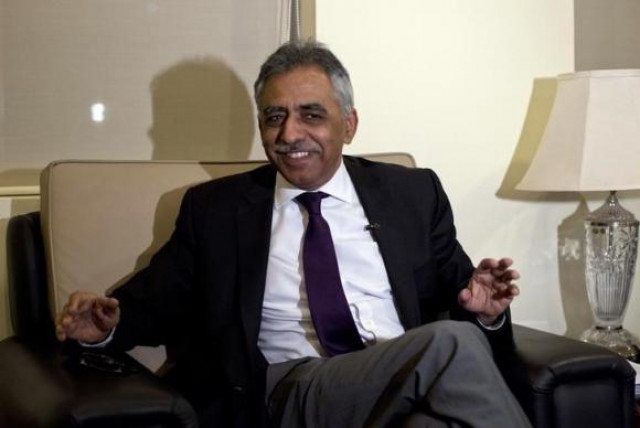Governor returns universities amendment bill for lack of uniformity
Zubair says bill will harm uniformity of educational standards in the country

Governor Mohammad Zubair. PHOTO: REUTERS
The governor has also declared that the end of Higher Education Commission (HEC) representation in public varsities in the province is illegal. A reliable source in the Sindh government told Express News that the bill was sent back with objections after being considered for a couple of days. Zubair said the bill will harm uniformity of educational standards. He went on to explain the importance of the Chancellor's Committee, which comprises governors and chancellors of all four provinces.
The committee discusses problems faced by public varsities across the country and makes important decisions about them. "But when the governors and chancellors have no authority, in what capacity will they be a part of the decision?" asked Zubair. It was stated in the bill that the 18th Amendment and approved amended 2013 university bill has deprived the governors and chancellors of their authority and if further powers are taken away from them, the checks and balances system at public varsities will collapse.
Public universities will now be controlled by the chief minister
The governor also objected to replacing the federal HEC member in university syndicates with a member of the Sindh HEC. He recommended that both members be included in the syndicates. He added that through the HEC, the federal government is issuing development and non-development budget for public varsities, budget for research grants and training. The framework for the functionality of the federal and provincial HECs has been decided by a Mutual Interest Council, yet the federal body's representation in the syndicate is being terminated.
Zubair also objected to a clause in the bill that allows termination of the varsities' vice-chancellors by the CM and suggested that a committee be formed, headed by the chief justice of the Sindh High Court or any other judge, to make such decisions rather than leave the power in the hands of the CM. Regarding objections raised on sections of the bill involving the syndicate selection boards, Zubair adopted the stance that instead of government officers, neutral professors should be taken on board.
According to the 2013 amendment bill, the authority to hire the VC and finance director of any public sector varsity was transferred from the governor to the CM.
In the present amendment bill, the governor is limited to a ceremonial role. The CM will have the power to preside over award ceremonies, grant approval for PhD degrees, appoint acting VCs and deans and preside over important meetings.
‘Those opposing Universities Law haven’t read it’
Zubair has also turned down the provincial government's bill elevating Kalimore College into a public sector university, raising objections similar to those made against the universities amendment bill.
However, the Sindh government maintains that the governor’s objections are only 'observations' relating to converting the college into a university. "The Sindh government has placed the governor as a ceremonial figure for universities, absolving him of all the responsibilities and powers he had before the bill," revealed sources.
A senior official in the Sindh government told Express News that as per the bill, the governor will only be responsible for presiding over graduation ceremonies and awarding honorary PhD degrees at the Hyderabad university.
"The CM will now act as controlling authority to appoint VCs, acting VCs, faculty deans and finance directors," the source said.
He added that the new bill ensures the provincial government's representation in university syndicates, senate and selections boards. The task of acting as an academic watchdog has been taken from the federal HEC and given to the provincial one. One of the governor’s objections to the college’s upgrade was the lack of federal representation in the university syndicate, as the varsity would be funded by the federal government.
The provincial assembly unanimously approved last month the Government College University Bill to upgrade Kalimore College into a public sector university. After the objections raised by the governor, the provincial law department will return the bill for fresh discussions in the assembly.
The tug of war for powers is likely to take its toll on higher education in Sindh. The battle is likely to delay the establishment of Hyderabad's first public sector university, further depriving the residents of the second most populous city of a suitable institution of higher learning.



















COMMENTS
Comments are moderated and generally will be posted if they are on-topic and not abusive.
For more information, please see our Comments FAQ